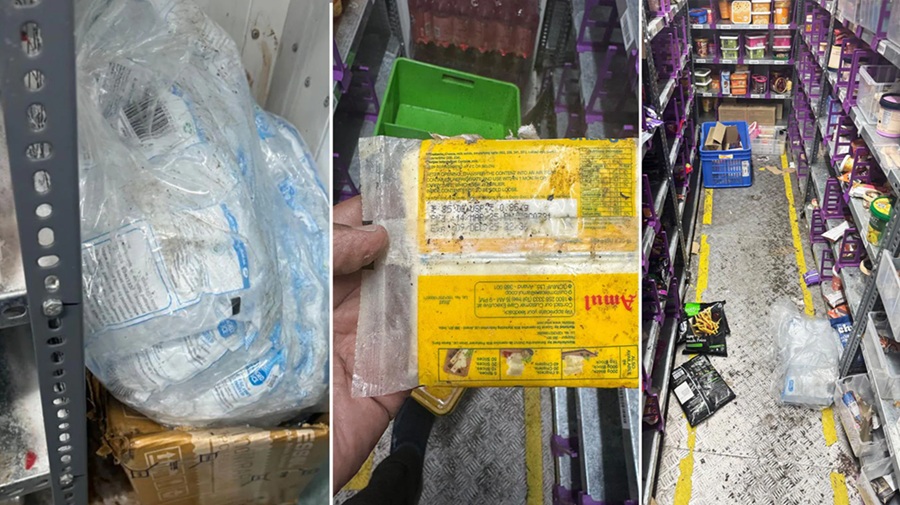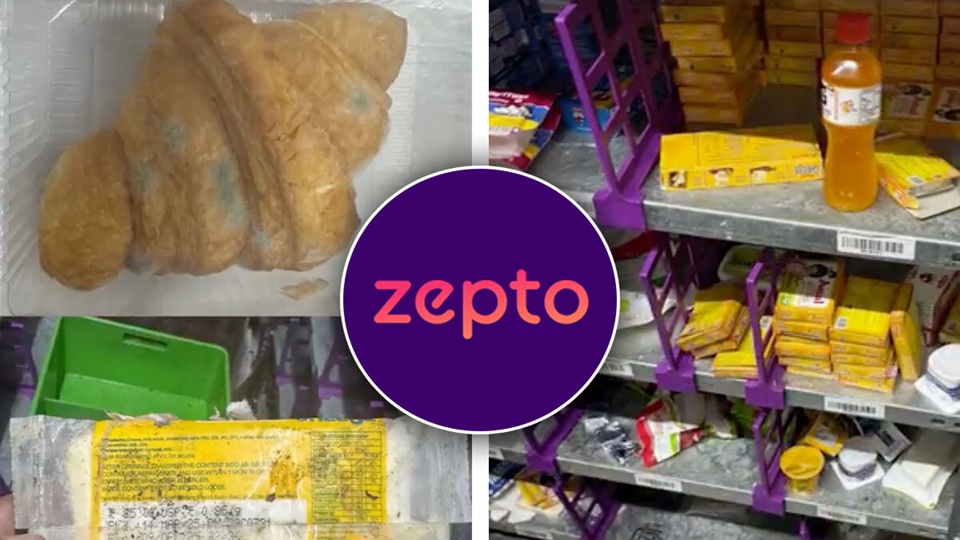In a shocking revelation that’s caused ripples across India’s booming quick-commerce sector, Mumbai authorities recently conducted a raid on a Zepto dark store that unveiled disturbing lapses in hygiene and food safety standards. The findings have raised serious questions about where your so-called “fresh” groceries actually come from — and how well-regulated these 10-minute delivery promises really are.
The Raid and What Was Found
The Brihanmumbai Municipal Corporation (BMC), along with the Food and Drug Administration (FDA) officials, conducted a surprise inspection at a Zepto dark store in Andheri East, Mumbai. Acting on multiple complaints from residents and former employees, authorities discovered expired food items, poor sanitation, and improper storage of perishable goods such as milk, vegetables, and ready-to-eat snacks.
Officials reported that a significant quantity of food lacked proper labeling, while some fresh produce was stored directly on the floor in damp conditions. The temperature in cold storage units was found inconsistent with food safety norms, and expired packaged goods were allegedly repackaged or not disposed of as per required standards. This is especially concerning in a supply chain built on speed, where rotation and oversight can easily fall by the wayside.
Quick-Commerce Under Scrutiny
The raid on Zepto is not an isolated incident but part of a broader probe now extending to other quick-commerce platforms like Blinkit, Swiggy Instamart, and BigBasket Now. These companies, which promise grocery deliveries in under 10–15 minutes, have mushroomed in urban India, backed by billions in investor funding. However, the very business model of instant deliveries hinges on high-speed logistics that often prioritize efficiency over quality control.
In response to growing concerns, the Maharashtra FDA has announced a comprehensive audit of dark stores operating across the state. Similar actions are expected in Delhi, Bengaluru, and Hyderabad — cities that account for the bulk of India’s quick-commerce orders. The Food Safety and Standards Authority of India (FSSAI) has also issued a circular mandating all quick-commerce firms to submit a detailed report of their sourcing, storage, and delivery protocols.
Regulatory Action in Motion
Zepto, along with other players, now faces legal scrutiny under multiple sections of the Food Safety and Standards Act, 2006. Penalties could include hefty fines, license suspension, or even temporary closure of dark stores found to be non-compliant. The BMC has issued a notice to Zepto, demanding immediate rectification of all highlighted violations and submission of a compliance report within seven working days.
Moreover, the Mumbai civic body is considering a policy to classify dark stores under commercial zones, which could lead to stricter inspection norms. Currently, many dark stores operate in residential neighborhoods, bypassing conventional retail regulations.
Zepto’s Response
Zepto, one of India’s fastest-growing grocery delivery startups, has responded to the allegations with a carefully worded statement. The company claims that the isolated store in question does not reflect its standard operating procedures and has already been taken offline for internal review. “We take food safety and hygiene very seriously. A thorough audit of all our facilities is already underway,” the spokesperson said.
Zepto has also pledged to retrain its warehouse staff and implement more robust internal checks, including third-party audits. However, critics argue that the damage is already done — the brand’s core promise of “freshness delivered fast” has taken a reputational hit that may not be easy to reverse.
Public Reaction: Trust Eroded?
Public response has been swift and unforgiving. Social media platforms are flooded with user accounts and images showing past orders that included wilted vegetables, broken eggs, and near-expiry dairy products — issues that many had shrugged off as “one-offs” now seem part of a systemic problem.

“I’ve stopped ordering groceries from quick-commerce apps entirely. It’s not worth risking your family’s health for convenience,” said Nidhi Sharma, a Mumbai-based working professional. Consumer rights groups are now calling for better transparency, including app-based disclosures on product expiry dates and sourcing details.
Even long-time customers have begun to reconsider their dependence on these platforms. “It’s ironic that the thing which brought us convenience is now being questioned for compromising on basic quality,” said Rakesh Menon, a frequent user of multiple 10-minute delivery services.
What Lies Ahead
The raid on Zepto’s dark store may mark a turning point for India’s quick-commerce landscape. While the sector’s breakneck growth has revolutionized grocery shopping, it now stands at a crossroads. Regulators are expected to issue updated guidelines for all dark store operators within the next few weeks, focusing on food safety, zoning compliance, and accountability in last-mile delivery.
Consumers, too, will likely see changes. Experts predict a shift from the ultra-fast model to a more sustainable “fast but safe” approach — one that prioritizes health over speed.
As more details emerge and investigations widen, this incident serves as a sobering reminder: when it comes to groceries, speed should never come at the cost of safety.
